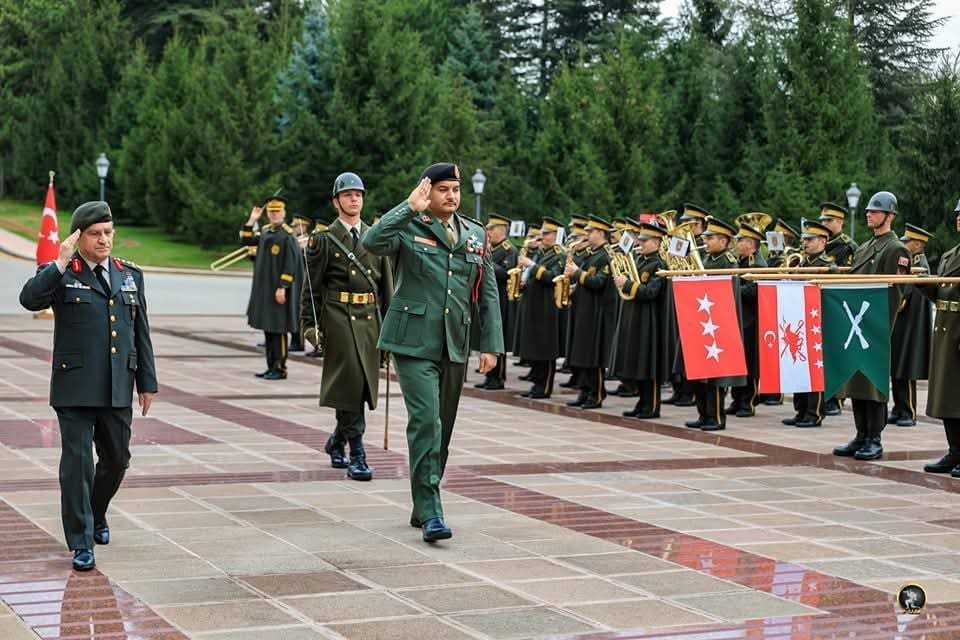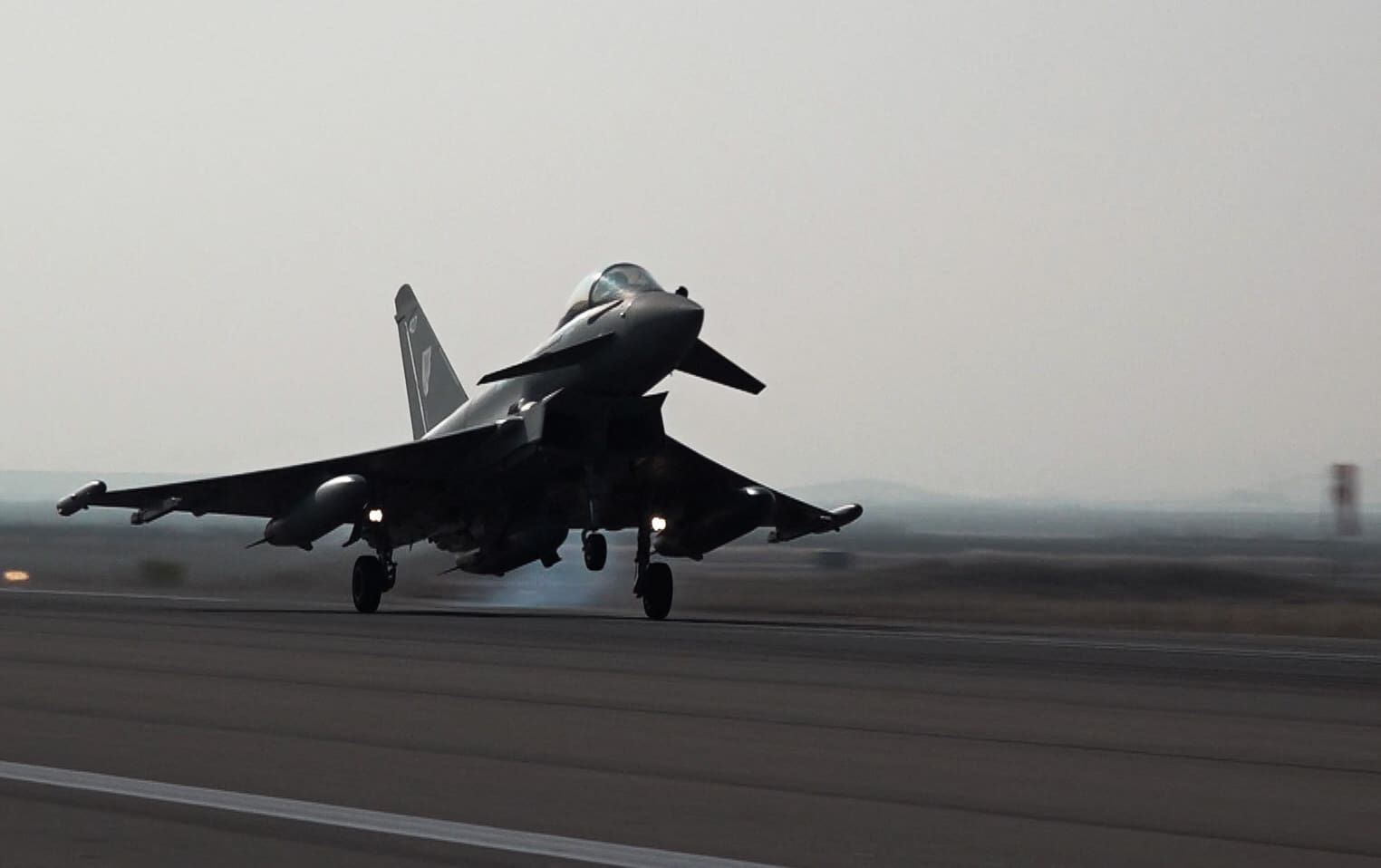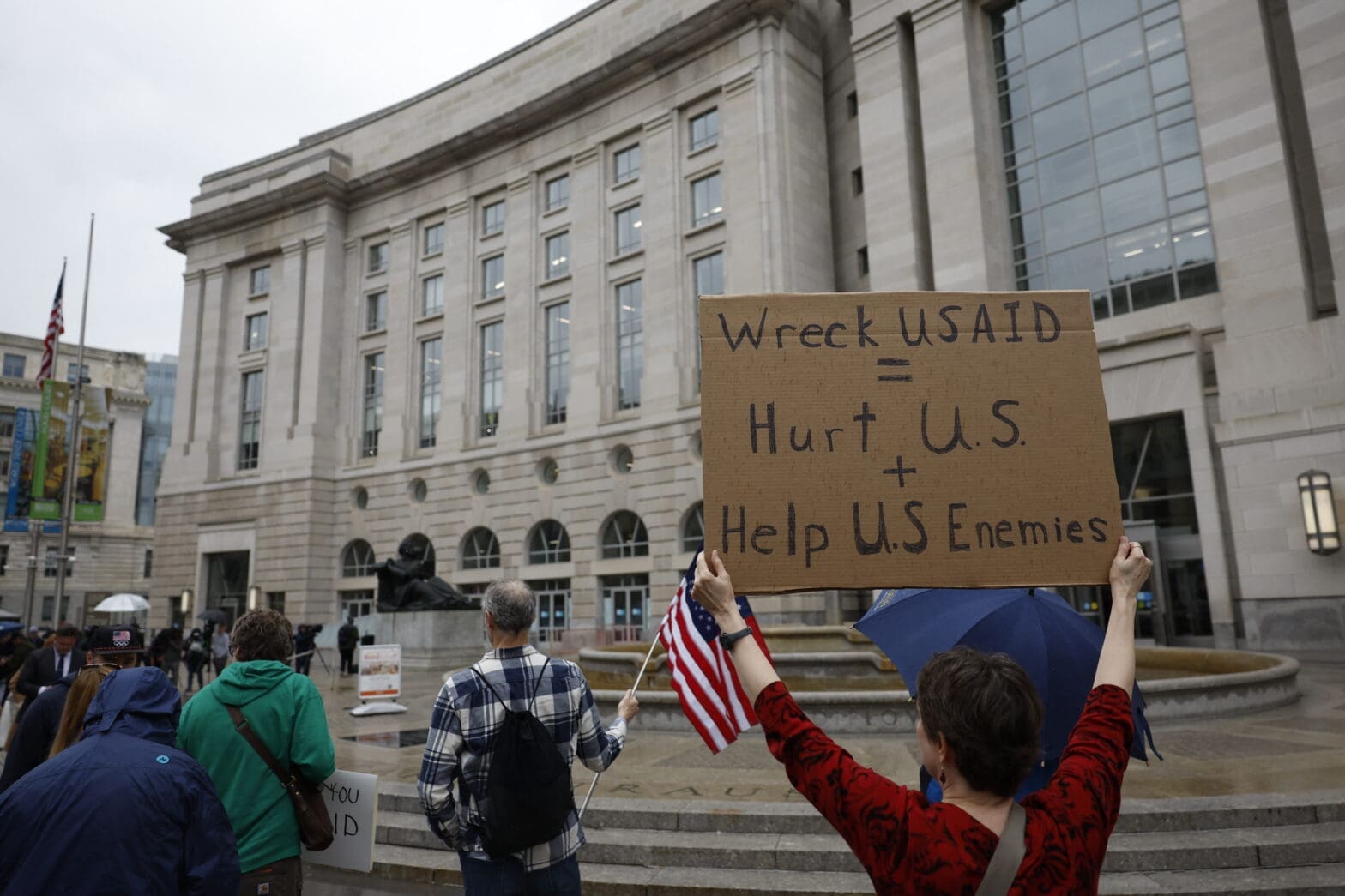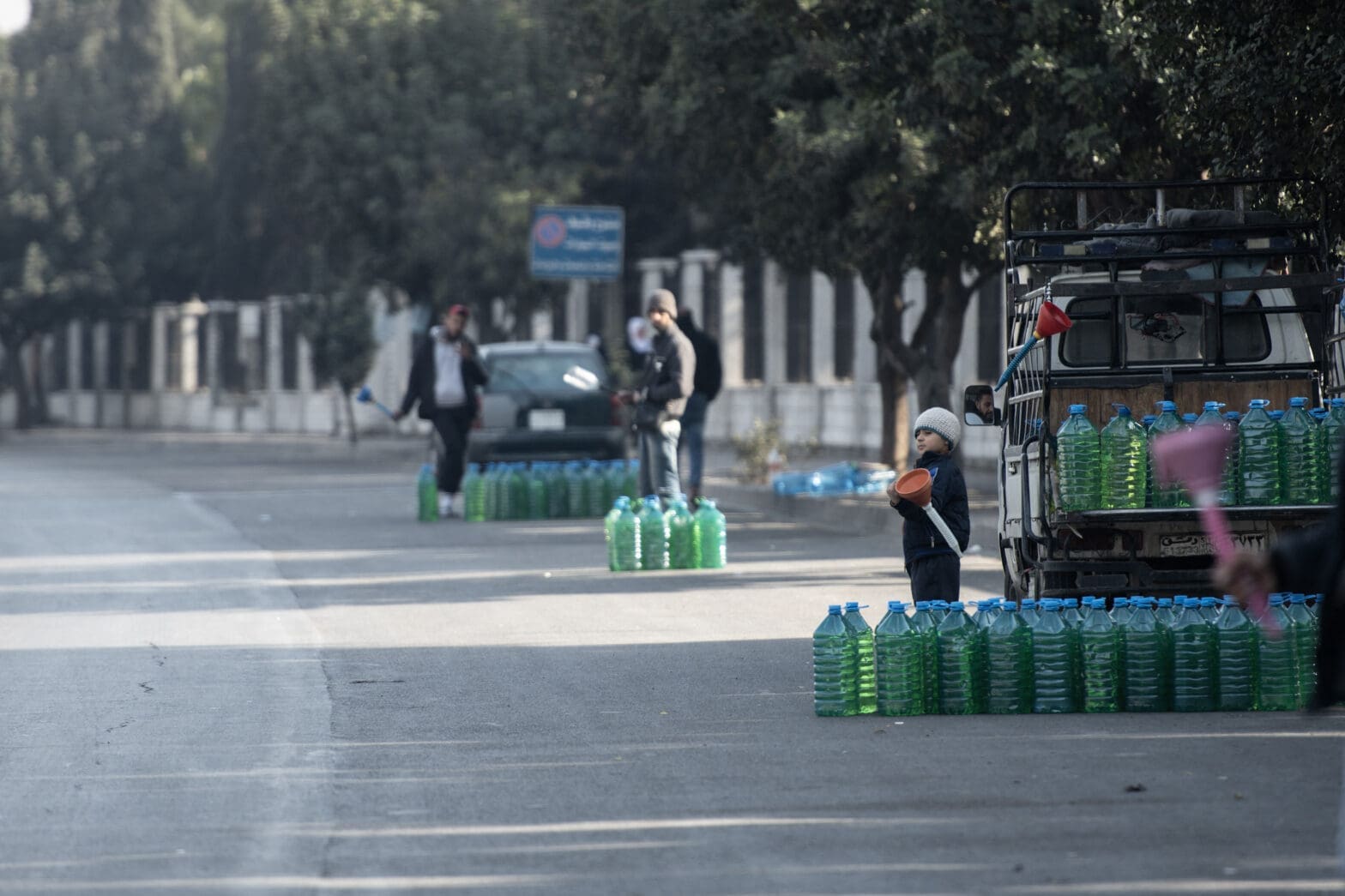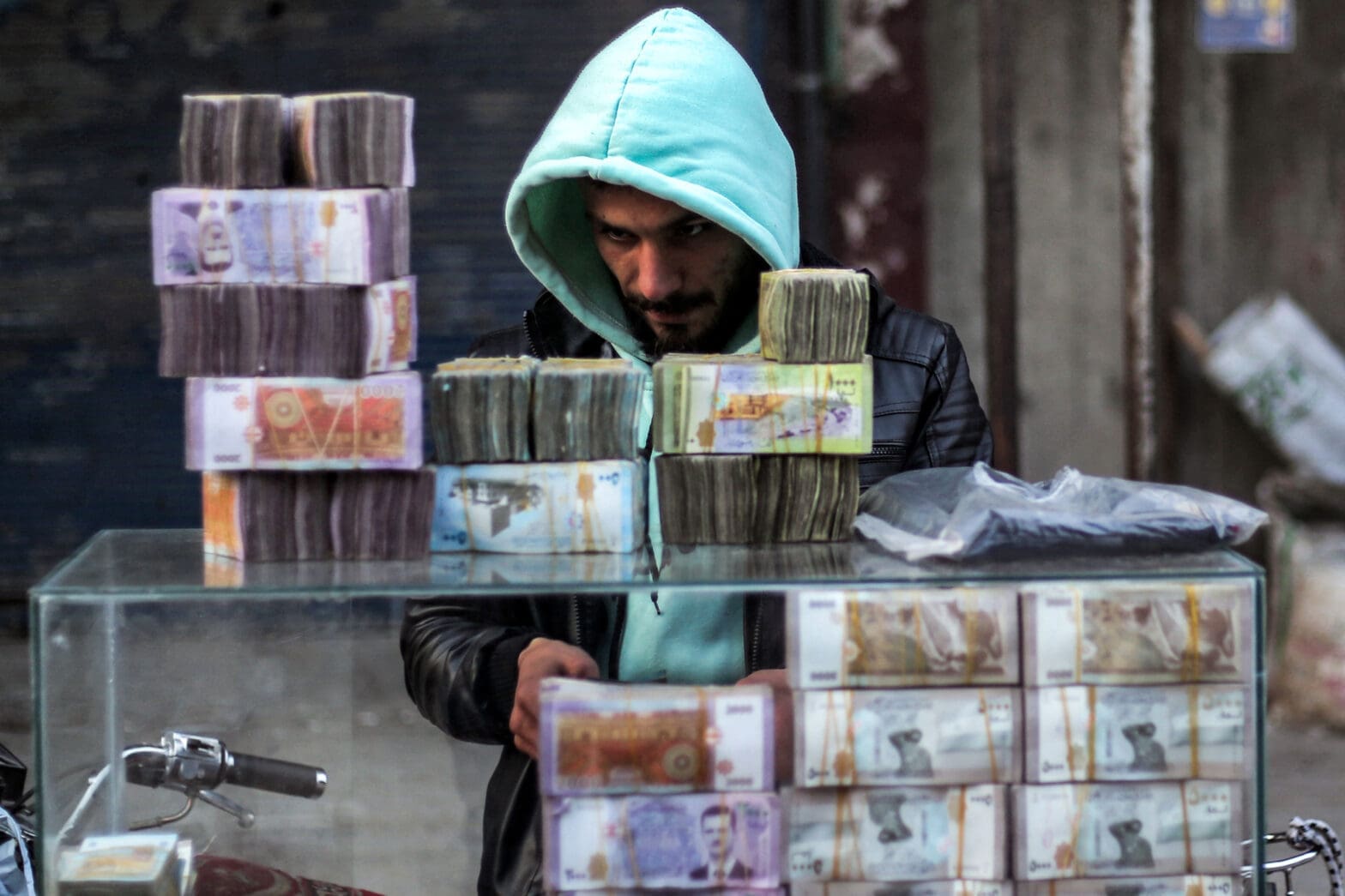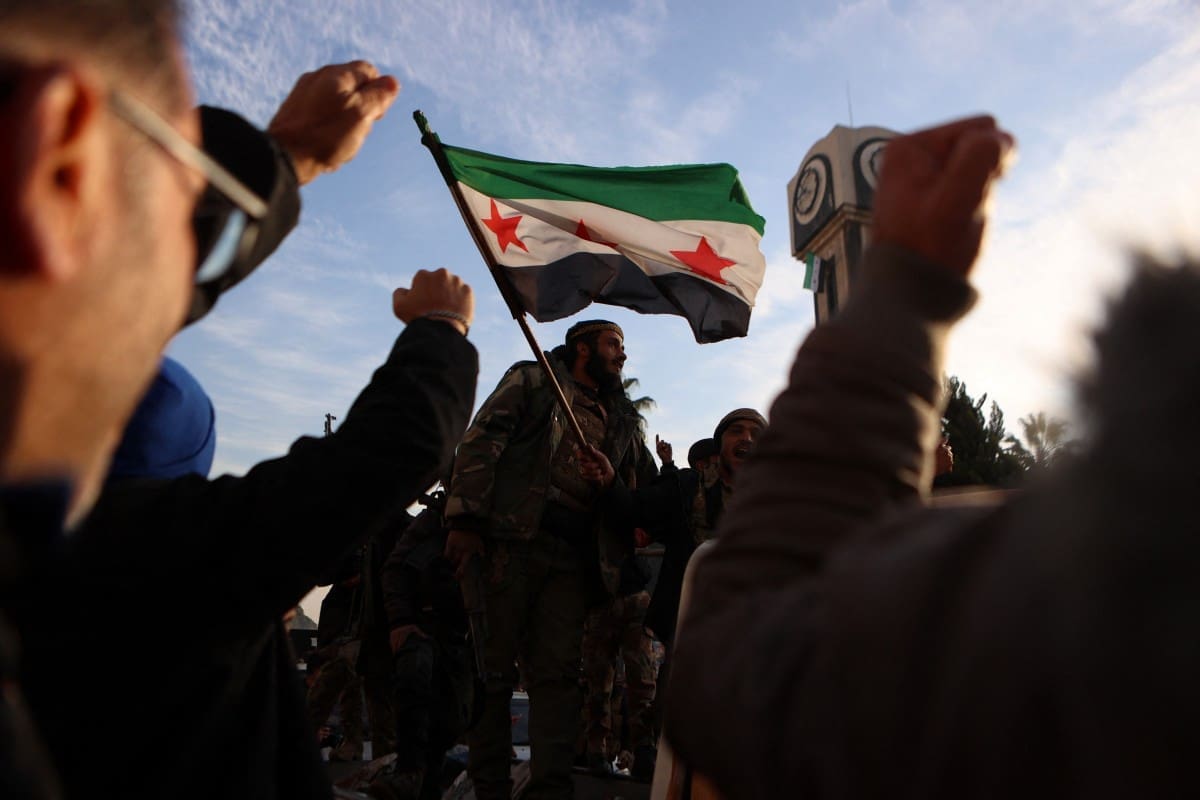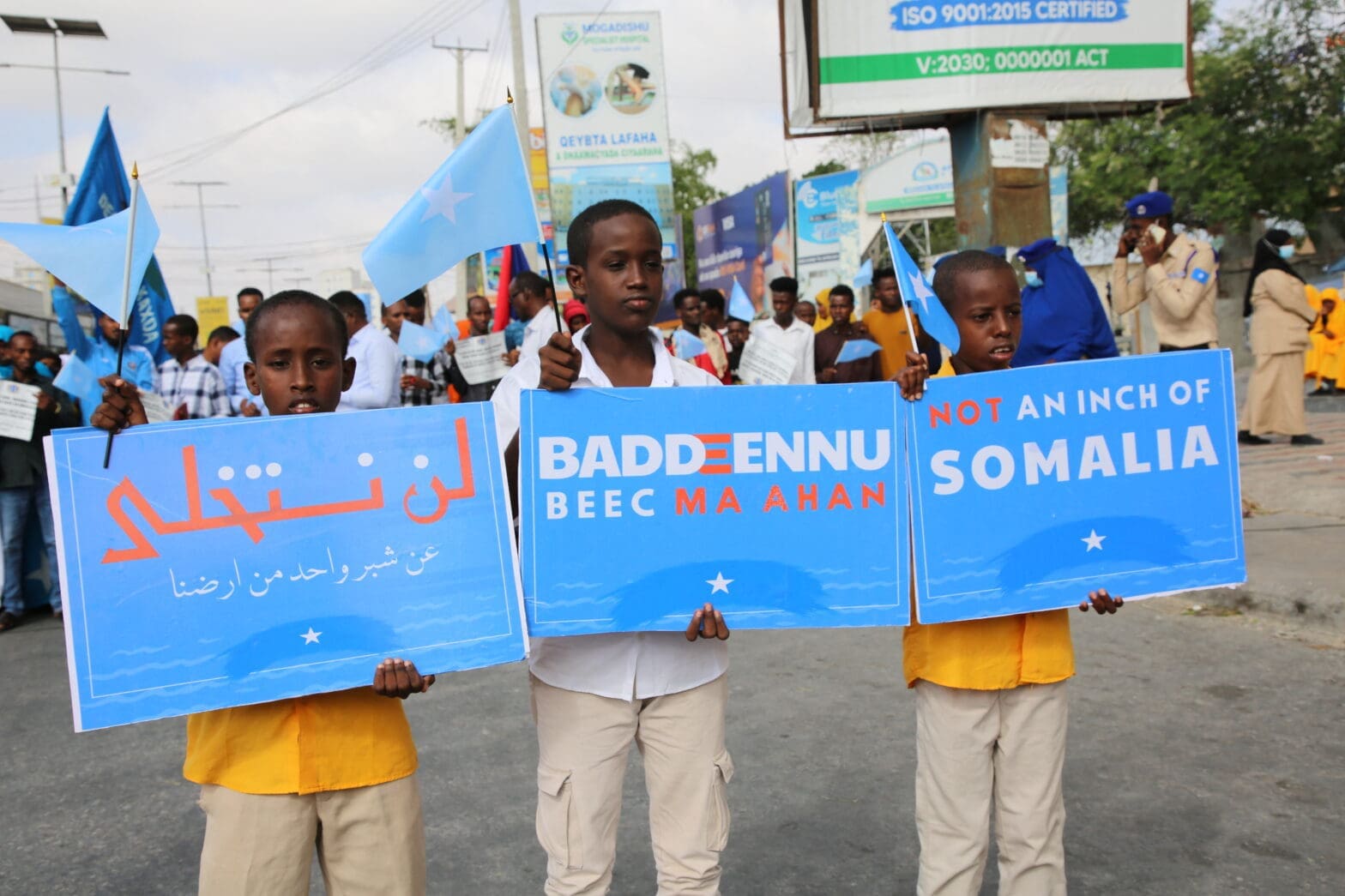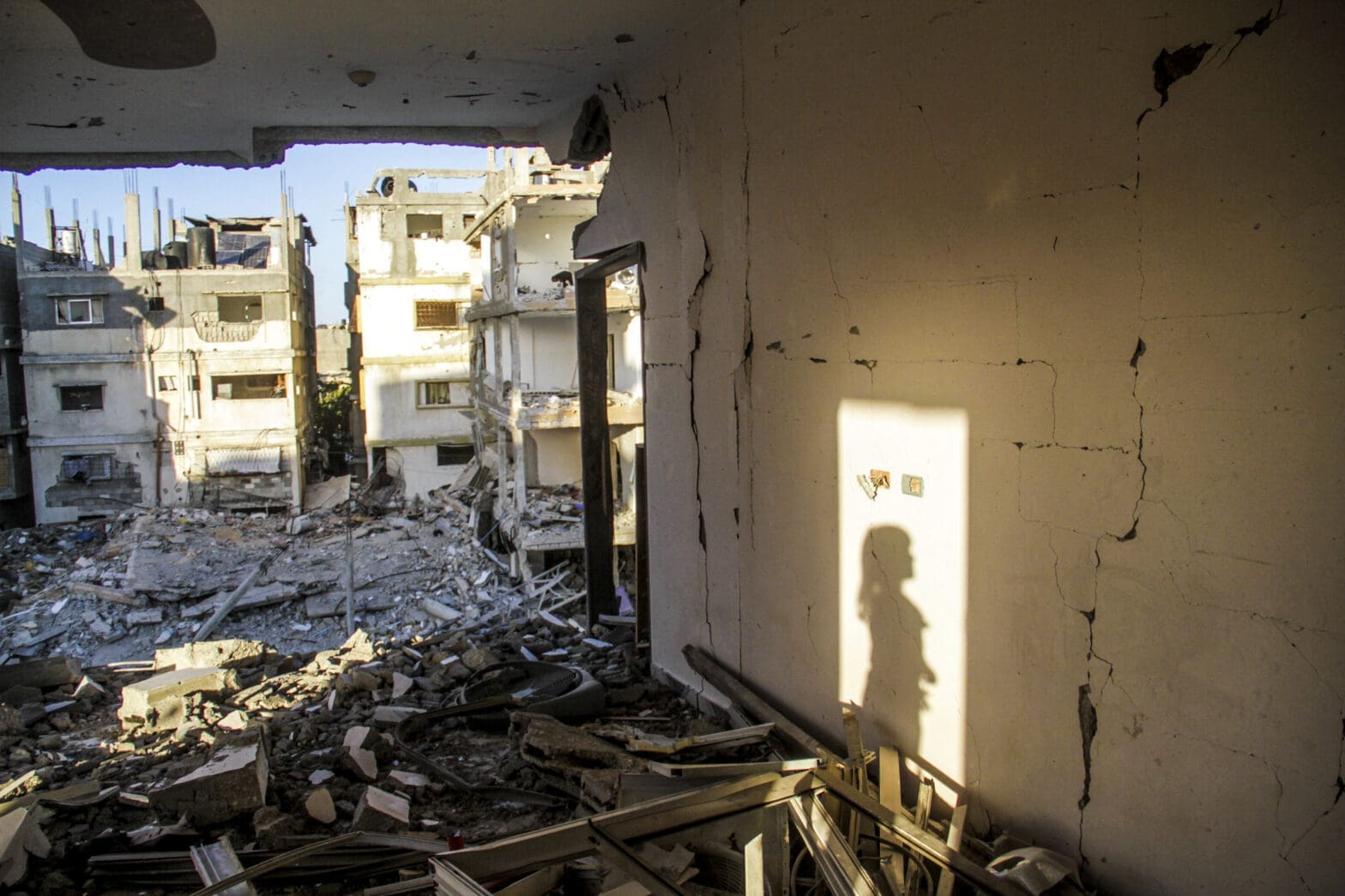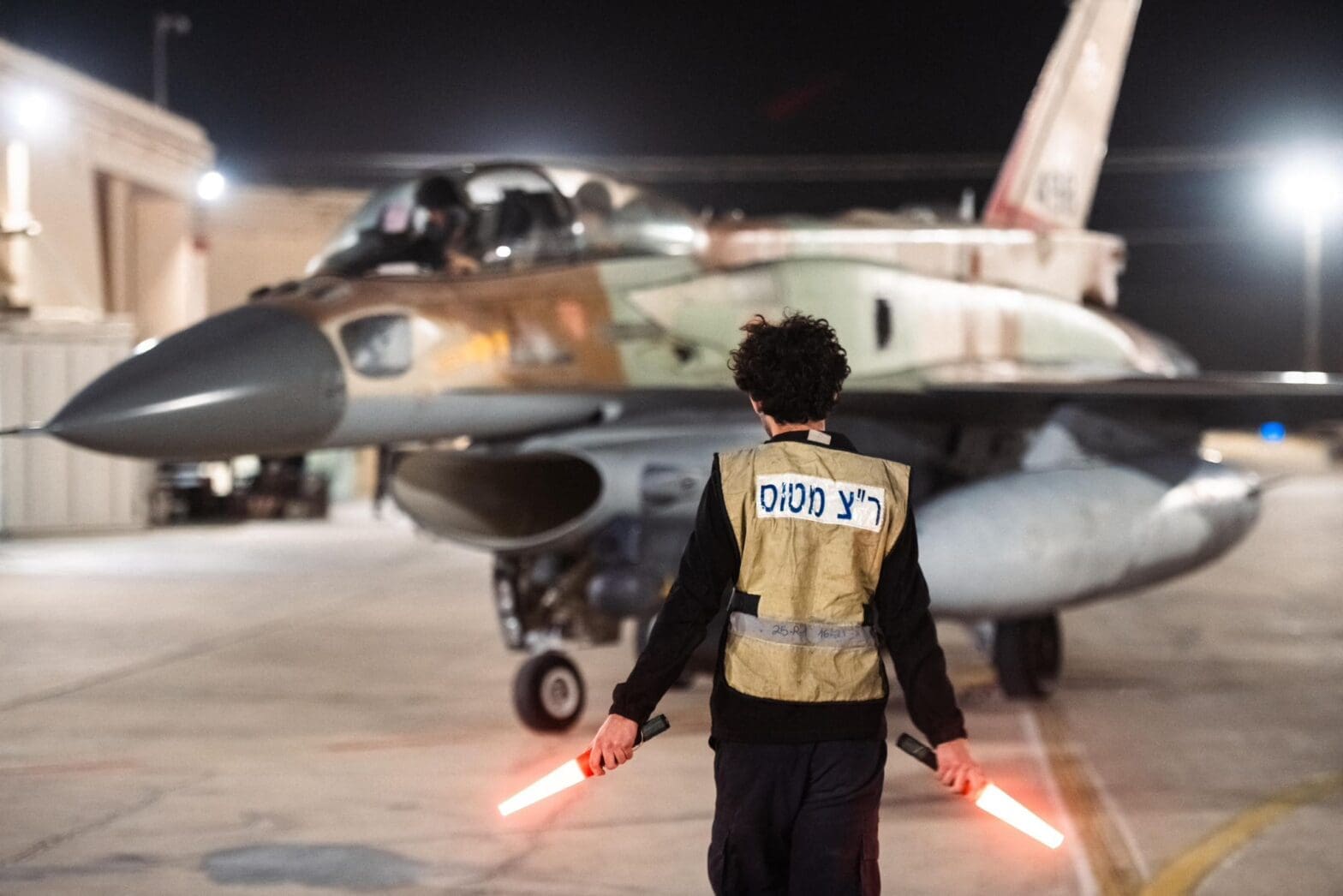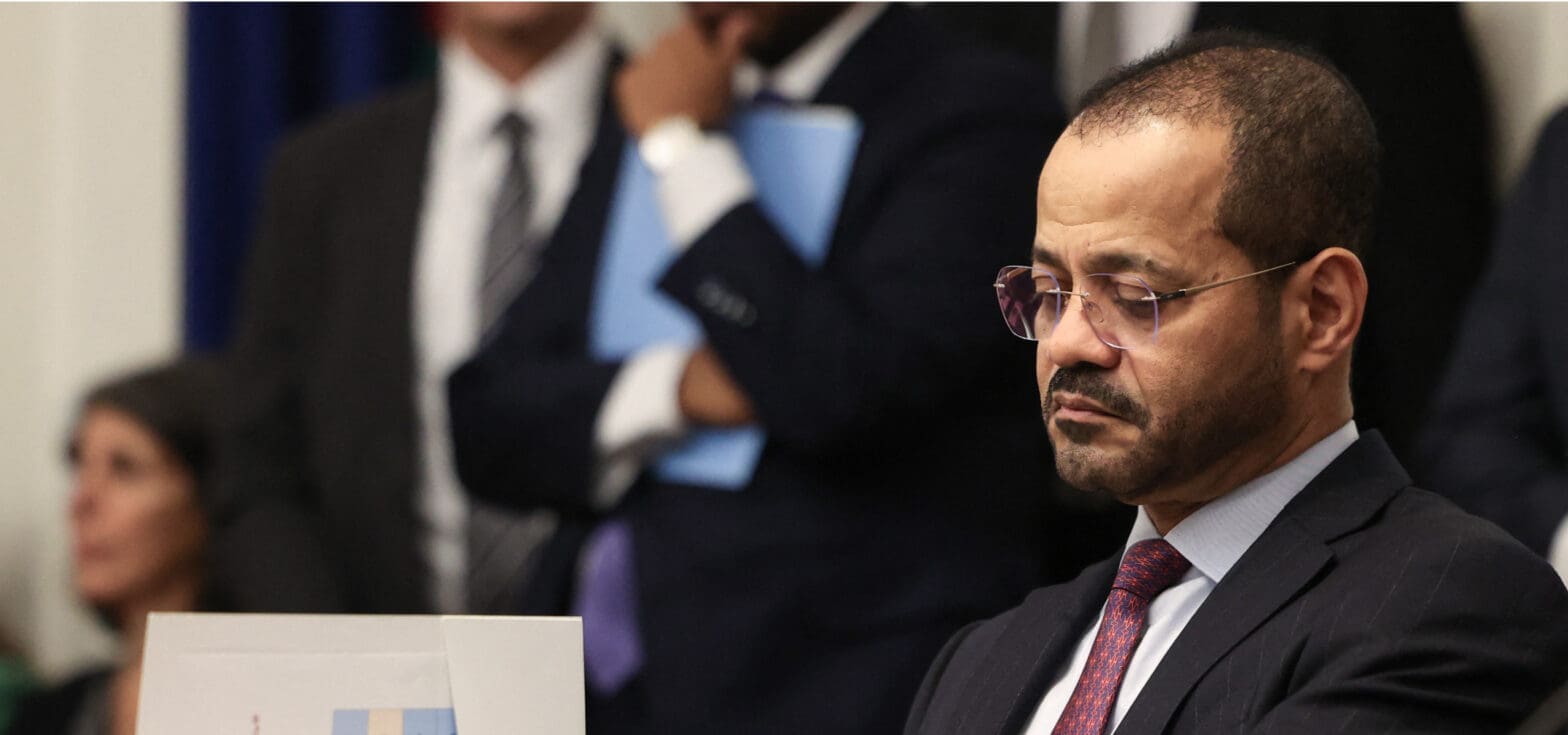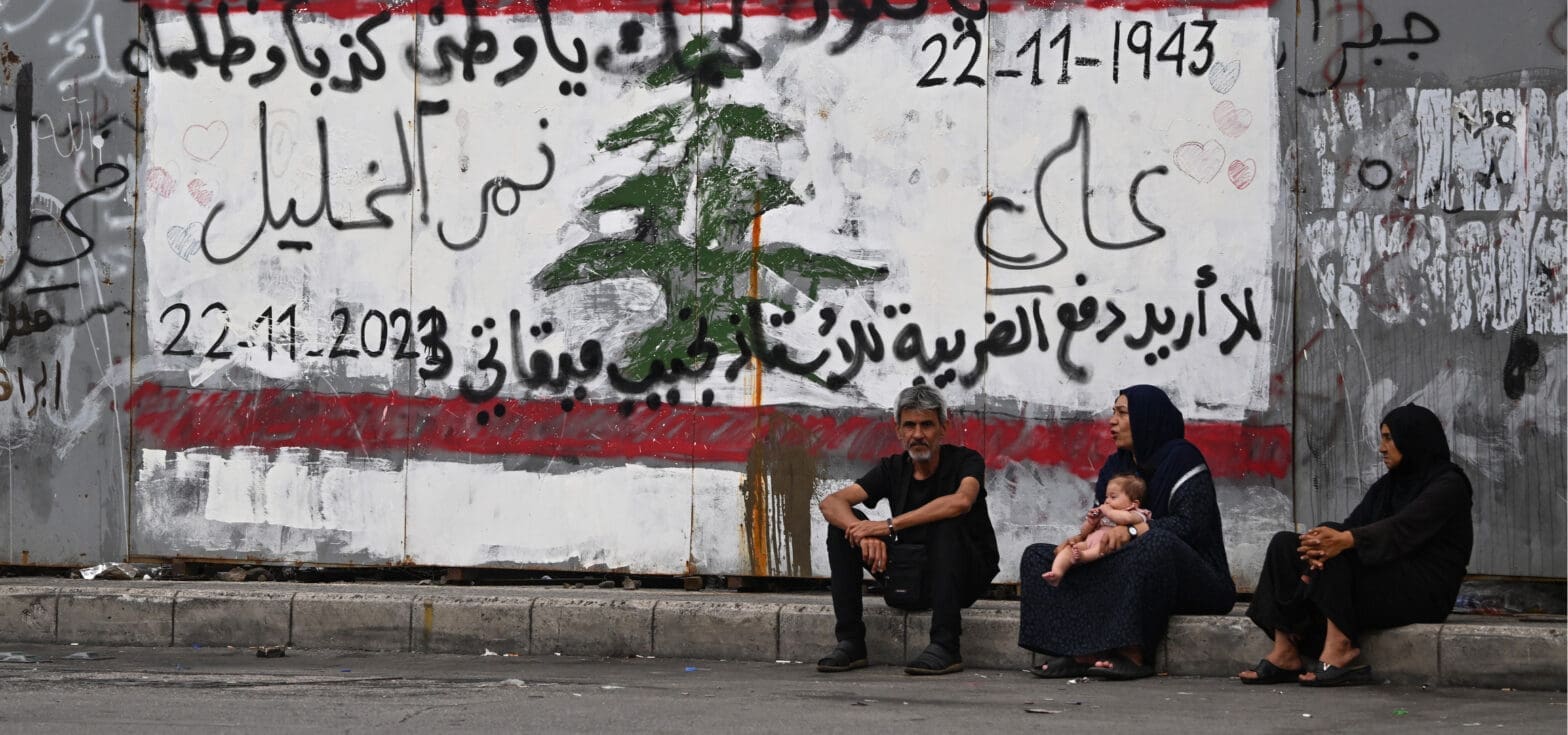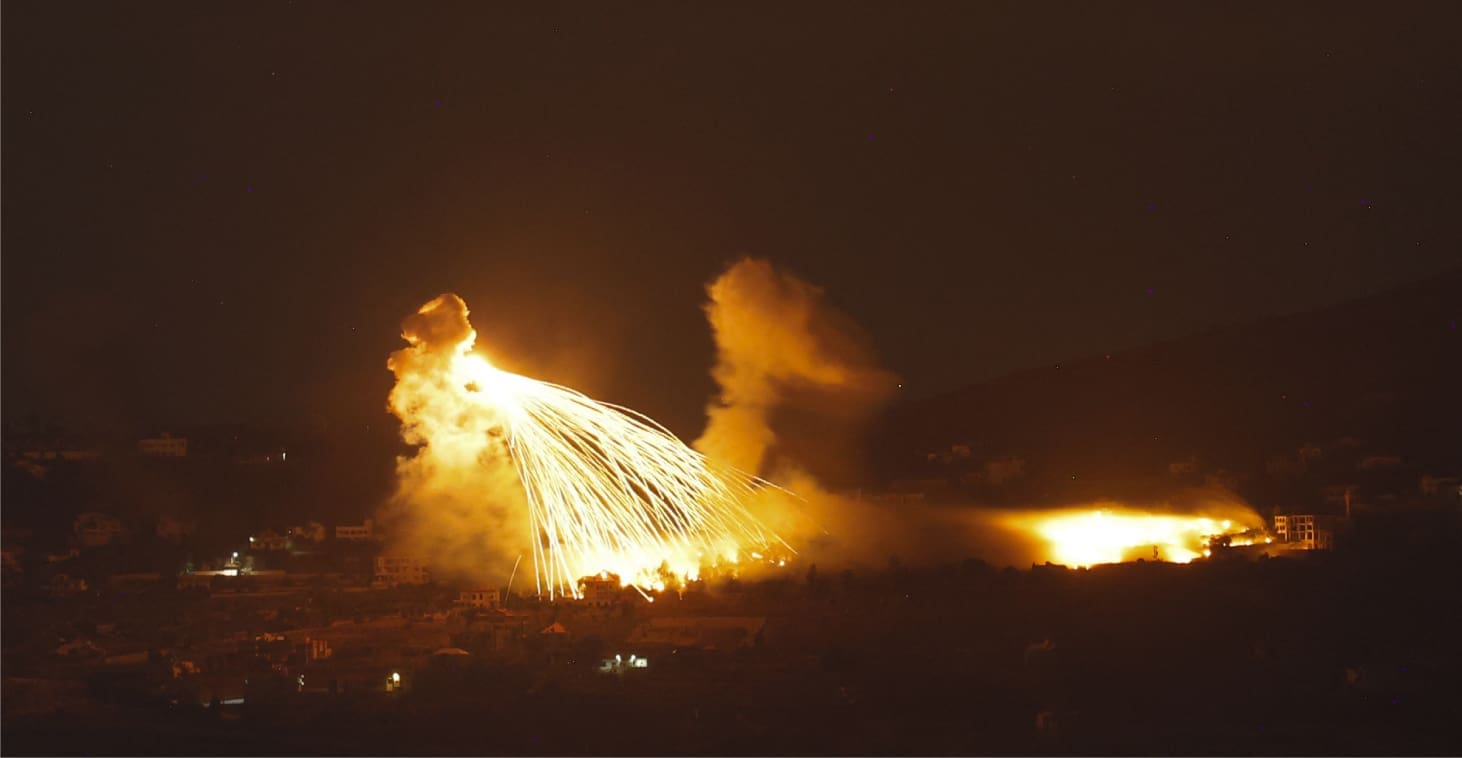Türkiye’s welcome of Saddam Haftar, son of eastern Libya’s de facto ruler Khalifa Haftar, was laden not only with ceremony but with implications for the North African country’s delicate balance of power. Walking down the red carpet in Ankara on April 4, the commander of land forces in his father’s self-styled Libyan Arab Armed Forces… Continue reading In Engaging the Haftars, Türkiye Makes Pragmatic Shift in Libya
Afkar Region: MENA
The First 100 Days: Trump’s Middle East Policy Revisited
By any standard of the American presidency, the first 100 days of Donald Trump’s second term have been eventful, to say the least. From the dismantling of government institutions to the imposition of protectionist trade policies to the launching of negotiations with Iran and Russia, the implications of Trump’s early agenda have been far reaching… Continue reading The First 100 Days: Trump’s Middle East Policy Revisited
Seizing the Moment for Peace in Syria
As the Trump administration begins pulling U.S. troops out of Syria and openly mulling its long-term future there, the Syrian Democratic Forces (SDF)—a Kurdish-led coalition force—may soon lose its most important military and political backer. This possibility, and the wider geopolitical shifts it could bring, was likely a major factor in SDF General Commander Mazloum… Continue reading Seizing the Moment for Peace in Syria
Two Years In, Sudan War Shows Little Sign of Ending
As Sudan’s brutal civil war enters its third year, political and military developments on the ground have sparked speculation that a turning point may be near. But a closer look reveals a bleaker reality: an end to the conflict, whether through a political settlement or military victory, remains distant. More worrying, the recent shifts have… Continue reading Two Years In, Sudan War Shows Little Sign of Ending
U.S. Disengagement Spurs Turkish-European Defense Cooperation
As the United States’ long-standing commitment to European security erodes under the Trump administration, the bloc’s defense partnership with Türkiye hit a new milestone in March, when a consortium of Europe’s leading arms companies submitted a formal bid to sell Ankara 40 Eurofighter Typhoon jets. The fighters have seen active service in the air forces… Continue reading U.S. Disengagement Spurs Turkish-European Defense Cooperation
Abu Dhabi’s Quiet Engagement in Afghanistan May Ease Taliban Isolation
For nearly a decade, international diplomacy concerning Afghanistan was mainly mediated by Qatar. Yet since the Taliban rolled into Kabul in August 2021, leading figures from the movement have made a string of high-profile visits to another key Gulf powerbroker, the United Arab Emirates. Their warm reception by the Emirati authorities suggests that Abu Dhabi… Continue reading Abu Dhabi’s Quiet Engagement in Afghanistan May Ease Taliban Isolation
Trump’s Aid Cuts Sever Stalwart of U.S. Soft Power in the Middle East
Amid the whirlwind of executive orders and major policy shifts coming out of the White House, President Donald Trump’s decision to freeze the operations of the U.S. Agency for International Development (USAID), which administers most U.S. foreign assistance, threatens to have a wide impact around the world. If prolonged, many programs in countries across the… Continue reading Trump’s Aid Cuts Sever Stalwart of U.S. Soft Power in the Middle East
Rebuilding Forever: Lessons of our failures
*This article is the second part in a two-part series. Read Part 1 here. If Syria’s Arab Spring forerunners have a fundamental lesson to impart, it is that achieving a symbiosis between a revolution’s leadership and its public is required to successfully transmute a deposed tyranny into a nation of self-determination and the representative state… Continue reading Rebuilding Forever: Lessons of our failures
The Arab Plan for Gaza Has Two Problems: Israel and the PA
Egypt’s proposal for the reconstruction and administration of Gaza has emerged as an urgent intervention in the crisis that has unfolded since October 7, 2023. Backed by the Arab states, the Organization of Islamic Cooperation, and several European nations, the plan is not merely a humanitarian initiative—it is a geopolitical maneuver meant to counter the… Continue reading The Arab Plan for Gaza Has Two Problems: Israel and the PA
Is Russia Entering U.S.-Iranian Nuclear Negotiations?
A three-way dance is developing between Washington, Moscow and Tehran over Iran’s nuclear program. Recently, U.S. President Donald Trump sent a letter directly to Iran’s supreme leader, Ali Khamenei, asking to enter negotiations, while indicating to the media separately that the alternative would be military action to prevent Iran from acquiring nuclear weapons. Khamenei responded… Continue reading Is Russia Entering U.S.-Iranian Nuclear Negotiations?
Call to Disband PKK Reshapes Türkiye, Syria Power Dynamics
The consequences of the call by the founder of the Kurdistan Workers’ Party (PKK), Abdullah Ocalan, for the group to disband are still reverberating—not just in Türkiye but also in the wider region. Shifting alliances in Syria—exemplified by the recent agreement between the Kurdish-led Syrian Democratic Forces (SDF) and the Syrian government—confirm that Ocalan’s message… Continue reading Call to Disband PKK Reshapes Türkiye, Syria Power Dynamics
As Trump Imposes Tariffs, What Will U.S. Protectionism Mean for MENA and the Global Economy?
The United States has long been the world’s leading advocate for free trade, promoting it as a means of expanding global commerce and specialization in production that links economies into diversified supply chains. This has led to an unprecedented period of economic growth and poverty alleviation, a period anchored largely in an international rules-based order… Continue reading As Trump Imposes Tariffs, What Will U.S. Protectionism Mean for MENA and the Global Economy?
In Post-Genocide Gaza, Women Will Rise from the Rubble
On September 19, 2023, weeks before October 7 and the onset of the genocidal war that has consumed Gaza, 80 Palestinian women gathered in the blockaded territory to discuss the future. They were empowered leaders, successful entrepreneurs, professional businesswomen, committed academics and innovative engineers and scientists—all united under the umbrella of the Business and Professional… Continue reading In Post-Genocide Gaza, Women Will Rise from the Rubble
For Syria, Lessons from Our Past Failures
The Assad family, like so many tyrannies before them, allowed their power, impunity, isolation and the resultant narcissism to foster a belief that their world would never end. Assad’s supporters—both for the father, Hafez, and the son, Bashar—would chant “our leader forever.” Until the day inevitably came when their rule ended and people sang, “forever… Continue reading For Syria, Lessons from Our Past Failures
Fast-Moving Geopolitical Dynamics Challenge Yemen and the Houthis
The fall of the Assad regime in Damascus represents a critical turning point in the geopolitical landscape of the Middle East. Beforehand, Syria functioned as a strategic link supporting Iranian influence from Tehran to Beirut and onwards to Yemen’s capital, Sanaa, making it a crucial component in the so-called “Axis of Resistance.” Recent setbacks to… Continue reading Fast-Moving Geopolitical Dynamics Challenge Yemen and the Houthis
The Art of Disruption: How Trump’s Foreign Policy is Impacting MENA
Since returning to office on January 20, 2025, Donald Trump has issued 67 executive orders, more than double any other president in American history. Given that some of those orders have serious implications for the Middle East and North Africa, Afkār has compiled views from Middle East Council on Global Affairs scholars to analyze some… Continue reading The Art of Disruption: How Trump’s Foreign Policy is Impacting MENA
Will Trump Remove Syria’s New Rulers from America’s Foreign Terrorist List?
Since 1997, the U.S. State Department has compiled a catalog of organizations it considers foreign terrorists. The FTO list, as it is known, has become a powerful tool in Washington’s “war on terror,” by subjecting parties on the list to the weight of American delegitimization and economic sanctions. Moreover, the qualification and threshold for being… Continue reading Will Trump Remove Syria’s New Rulers from America’s Foreign Terrorist List?
Maximum Pressure on Iran, Minimal Results
Among the top foreign policy issues Donald Trump faces in his second term are the perceived challenges and threats posed by Iran. To this end, Trump revived the “maximum pressure” campaign that characterized his approach to Iran in his previous term. At the same time, hawks in Washington are calling on the administration to support… Continue reading Maximum Pressure on Iran, Minimal Results
Assad’s Fall in Syria Poses Serious Questions Inside Iraq
Recent developments in Syria, including the fall of the Assad regime, Iran’s failure to quell the rebel advance into Damascus and subsequent withdrawal of its proxies from the country, have generated shockwaves in neighboring Iraq. For the first time in Iraq’s post-2003 political history, the prospect of breaking Iran’s outsized influence over the Iraqi state… Continue reading Assad’s Fall in Syria Poses Serious Questions Inside Iraq
TikTok Is Back, but for Whom?
U.S. users briefly lost access to popular social media platform TikTok earlier this week, following a legislative push to force the app’s Chinese-owned parent company to divest from its U.S. operations. While Donald Trump had endorsed the effort to ban the app during his first term, he recently reversed his stance, signing an executive order… Continue reading TikTok Is Back, but for Whom?
With a New Government in Charge, a New Era in Lebanon Beckons
The nomination of Nawaf Salam as Lebanon’s new prime minister alongside Joseph Aoun as president, after more than two years of political vacuum, is a momentous occasion heralding a new era for Lebanon. It can be an historical opportunity akin to the 1989 Taif Agreement, which formed the basis of ending Lebanon’s 15-year civil war… Continue reading With a New Government in Charge, a New Era in Lebanon Beckons
Will U.S. Sustain Pressure on Israel to Implement the Ceasefire Deal?
President-elect Donald Trump appears to have followed through with his promise to achieve a Gaza ceasefire before his inauguration on January 20. The incoming administration succeeded where the Biden administration failed, showing that U.S. pressure on Israel can lead to results. While many dismissed Trump’s threat that “all hell will break out” if the hostages… Continue reading Will U.S. Sustain Pressure on Israel to Implement the Ceasefire Deal?
MENA Outlook for 2025
With the December collapse of the Assad regime in Syria, 2024 came to a close in a dramatic and region-altering fashion. This, along with the numerous other major trend lines and points of conflict, likely makes 2025 a year that will be significant in reshaping the region’s future. Looking forward to what may be coming,… Continue reading MENA Outlook for 2025
With Axis of Resistance in Retreat, How Will Iranian People Respond?
Iran’s regional policy is on the backfoot. Years of patronage and investment in the “Axis of Resistance,” a network of friendly actors that share Iran’s hostility toward U.S. hegemony in the Middle East, has unraveled in a short period of time and caught the Iranian regime off guard. While Iran’s leadership scrambles for a response,… Continue reading With Axis of Resistance in Retreat, How Will Iranian People Respond?
Whither the New Syria?
As history was made in Syria over the past month, seismic shocks have reverberated across the region. To start, the world witnessed the final convulsion of the World War I-era Sykes-Picot Agreement, which one historian called, with due irony, “a peace to end all peace.” Perhaps more ironic still, the signatories of that bygone treaty,… Continue reading Whither the New Syria?
Regional Economy Faces Plenty of Challenges—and Reasons for Hope—in 2025
Despite the turmoil rocking the Middle East and North Africa (MENA), there may be some glimmers of hope for the region’s economies in 2025. The World Bank and the International Monetary Fund (IMF) are both projecting an uptick in growth in most MENA economies. However, structural challenges, political instability, and geopolitical tensions will continue to… Continue reading Regional Economy Faces Plenty of Challenges—and Reasons for Hope—in 2025
A Crisis Averted in Palestinian Banking Portends a Total Collapse
In early December, the Palestinian banking sector narrowly avoided financial freefall, as Israel’s far-right finance minister toyed with removing a crucial safeguard underpinning the correspondent relationship between Palestinian and Israeli banks. These safeguards protect the Israeli side from domestic and international legal risks arising from transactions with their Palestinian counterparts, offering immunity and indemnity if… Continue reading A Crisis Averted in Palestinian Banking Portends a Total Collapse
Why Jihadist Groups Never Really Die
The lightening quick takeover of Syria by Hayat Tahrir al-Sham (HTS) led-fighters in an offensive that began on November 27 and ousted the 54-year old Assad regime by December 8, has been stunning. Indeed, the speed of developments has left many observers with more questions than answers, including on the character of the rebel forces,… Continue reading Why Jihadist Groups Never Really Die
Arab Public Opinion Under Pressure
Editor’s Note The relevance of public opinion in the Middle East and North Africa is a question often debated but little understood. Given the high prevalence of autocracy, surveys of popular sentiment are limited, while freedoms of speech and press are not the norm. Indeed, as thousands of political prisoners freed in recent days from… Continue reading Arab Public Opinion Under Pressure
Today Syrians Celebrate, Tomorrow the Real Work Begins
On December 8, the world awoke to stunning news. Overnight, rebel forces led by Hayat Tahrir al-Sham (HTS) had taken Damascus, facing little resistance as they entered the Syrian capital. Most of the state’s security agents and armed forces simply abandoned their positions and walked away. In an instant, the Assad regime’s fifty-four-year brutal rule… Continue reading Today Syrians Celebrate, Tomorrow the Real Work Begins
As Syria Heats Up, Türkiye Finds Itself in the Spotlight
The sudden and dramatic developments in northern Syria—beginning in the outskirts of Idlib and surrounding villages near Aleppo and culminating in Syria’s second largest city falling into rebel hands—have thrust Türkiye—widely seen as the closest external power to the rebel factions—into a spotlight it neither sought nor fully avoided. The speed and ease with which… Continue reading As Syria Heats Up, Türkiye Finds Itself in the Spotlight
Can the Israel-Hezbollah Ceasefire Hold?
After more than a year of hostilities that intensified dramatically in recent months, Hezbollah and Israel have agreed to a ceasefire, but the fragile agreement has already been tested by reported violations. In this interview with Afkār, Saoud El Mawla, visiting senior fellow at the ME Council, examines the deal’s significance and durability, as well… Continue reading Can the Israel-Hezbollah Ceasefire Hold?
Lack of Palestinian Leadership Exacerbates Post-October 7 Crisis
For more than a year, Palestinians have faced a systematic and relentless assault on their homeland, amounting to the most profound crisis since the Nakba of 1948. Following the events of October 7, 2023, Israel has embarked on a genocidal campaign against the population of the Gaza Strip and stepped up its repression in the… Continue reading Lack of Palestinian Leadership Exacerbates Post-October 7 Crisis
Thinking Through China’s Middle East Policy Amid War
For many years, China has been expanding its influence to every corner of the globe. And while its strategic priorities remain anchored in the Western Pacific—where it faces great-power rivalry with the United States, myriad territorial disputes, tensions on the Korean Peninsula and the potential for military conflict over the Taiwan Strait—its steadily growing presence… Continue reading Thinking Through China’s Middle East Policy Amid War
Trump’s Return and Implications for the Middle East
On November 6, within hours of closing the polls, Donald Trump was declared the winner of the 2024 presidential election in the United States, defeating Vice President Kamala Harris by a wide margin. Trump’s remarkable triumph, which will return him to the White House after his defeat to Joe Biden in 2020, comes at a… Continue reading Trump’s Return and Implications for the Middle East
Ethiopia and Somalia on the Edge of War
For months, momentum had been building toward war between Ethiopia and Somalia. After the breakaway region of Somaliland signed an agreement with Addis Ababa in January to exchange littoral rights for potential diplomatic recognition, tensions soared across the Horn of Africa. While recent weeks have seen the regional boil reduce to a simmer, other hot-button… Continue reading Ethiopia and Somalia on the Edge of War
Efforts To Restore Bahrain-Iran Ties Gather Momentum
On October 21, Iran’s Foreign Minister Abbas Araghchi visited Manama and met with King Hamad bin Isa Al Khalifa, marking a significant turning point in Iran-Bahrain relations that have been severed since 2016. This visit—the first by an Iranian foreign minister to Bahrain since 2010—took place amid an escalating military confrontation between Iran and Israel. While Bahrain… Continue reading Efforts To Restore Bahrain-Iran Ties Gather Momentum
Adapting the Women, Peace and Security Agenda to the Arab World
When United Nations Security Council (UNSC) resolution 1325 on Women, Peace and Security (WPS) was adopted on October 31, 2000, it marked an unprecedented commitment by the international community to regard women as integral partners in peace processes. The WPS “agenda,” as it came to be known, encompasses ten UNSC resolutions that recognize the devastating… Continue reading Adapting the Women, Peace and Security Agenda to the Arab World
How Will Iran React to Israel’s Latest Strikes?
On October 26, Israel carried out a long-anticipated strike against Iran, which came in retaliation for an Iranian missile barrage on Israel earlier this month—itself a response to a series of Israeli assassinations of Iranian, Hezbollah, and Hamas leaders since July. The latest exchange, however, marks a significant escalation in the confrontation between the two… Continue reading How Will Iran React to Israel’s Latest Strikes?
The BRICS+ Summit and the Shifting Global Order
On October 22nd, Russia will host the BRICS+ annual summit—its ranks swelled by new members and ambitions. As this year’s chair, Russia presides over a bloc that now represents 45.5% of the world’s population—more than four times that of the G7—with a combined GDP of $28.5tn, and 25% of global exports. BRICS+ is poised to… Continue reading The BRICS+ Summit and the Shifting Global Order
Oman’s Quiet Role in Calming Regional Tensions
The Saudi-Iranian renormalization agreement of March 2023 was a watershed in modern Middle Eastern diplomacy. Yet while China received much of the credit for the reconciliation, which cooled the flames of one of the region’s most tense rivalries, the previous two years of heavy lifting had largely been the work of Iraq and the Sultanate… Continue reading Oman’s Quiet Role in Calming Regional Tensions
Lebanon Conflict Will Only Exacerbate Existing Economic Crisis
A major humanitarian crisis is unfolding in Lebanon. Israel’s attacks have exacted a heavy toll with over 2,000 people killed and 9,000 wounded. The last two weeks have wreaked severe damage on core infrastructure, public utilities, water, sanitation, power and roads. The country’s health system has also been degraded. Much of Beirut’s Dahiyeh and South Lebanon stands… Continue reading Lebanon Conflict Will Only Exacerbate Existing Economic Crisis
A Region Under Fire
Editor’s Note: There Are No Winners Here Omar H. Rahman, Fellow and Editor of Afkār, Middle East Council on Global Affairs The Israeli-Palestinian conflict did not begin on October 7, 2023. Decades of military occupation, colonial land theft and systemic deprivation had already pushed Palestinians into a state of constant struggle, laying the groundwork… Continue reading A Region Under Fire
Can Hezbollah Regroup as Israel Begins Ground Incursion?
In the aftermath of Israel’s successful assassination of Hezbollah Secretary-General Sayyed Hassan Nasrallah, and as Israel begins its ground incursion in parts of southern Lebanon, two interrelated issues emerge. First, the status of Hezbollah and its future role in Lebanon and the region come into question. While Nasrallah’s assassination dealt a significant blow to the… Continue reading Can Hezbollah Regroup as Israel Begins Ground Incursion?
Ethiopia-Somalia Dispute: What Is at Stake for MENA? – Council Views
On January 1, the self-proclaimed Republic of Somaliland and landlocked Ethiopia signed a controversial memorandum of understanding (MoU) granting the latter port access to the Red Sea. In exchange for a 50-year lease of coastline near the strategic port of Berbera for commercial and naval uses, Addis Ababa agreed to consider recognizing Somaliland as a… Continue reading Ethiopia-Somalia Dispute: What Is at Stake for MENA? – Council Views
Interview: Hezbollah After Nasrallah
On September 28, Hezbollah confirmed the death of its longtime leader Hassan Nasrallah following a massive Israeli airstrike in the Dahiyeh suburb of Beirut. The assassination of Nasrallah follows a series of escalatory measures that includes the disruption of Hezbollah’s communication network through an explosive pager operation, the assassinations of other senior leaders in the… Continue reading Interview: Hezbollah After Nasrallah
Interview: A Step Back for Iran’s “Forward Defense”
In recent weeks, Israel has dramatically escalated its attacks in Lebanon, dealing a critical blow to much of Hezbollah’s top military leadership, including the late Secretary General Hassan Nasrallah. In this interview with Afkār, Hamidreza Azizi, an Iran expert and security analyst, offers his insights on Tehran’s strategic calculus at this watershed moment, including on… Continue reading Interview: A Step Back for Iran’s “Forward Defense”
Interview: Türkiye Engages the Arab League
At the most recent meeting of the League of Arab States (LAS) in Cairo, Turkish Foreign Minister Hakan Fidan was in attendance, marking the first time Türkiye has been represented at the summit in 13 years. In his address, Fidan offered pointed remarks on the war on Gaza and the need for unity among Arab… Continue reading Interview: Türkiye Engages the Arab League
Interview: Israel and Hezbollah Enter a New Stage of War. What’s Next?
On September 23, Israel began a major military offensive against Lebanon that left around 500 people dead, mainly civilians, and caused mass panic across the south of the country. This followed days of strikes against Hezbollah commanders and a surprise attack on Hezbollah personnel by triggering the explosion of thousands of low-tech communications devices like… Continue reading Interview: Israel and Hezbollah Enter a New Stage of War. What’s Next?
Assessing Qatar’s Deepening Ties to Iraqi Kurdistan
Over the past year, Qatar and the Kurdistan Region of Iraq have ramped up their relations. Under Prime Minister Masrour Barzani, the Kurdistan Regional Government (KRG) has prioritized improved diplomatic and economic ties to the Gulf. That has included expanded trade with Doha, particularly in agriculture. Erbil and the Gulf states are also improving their… Continue reading Assessing Qatar’s Deepening Ties to Iraqi Kurdistan

